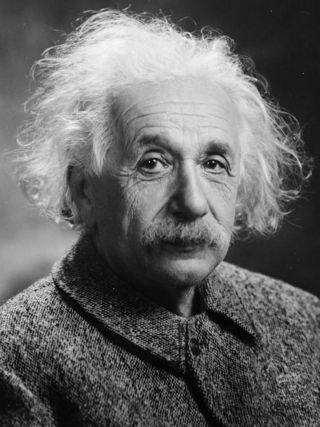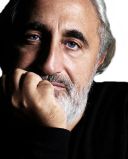Freudian Psychology
Which Ten Historical Figures Would You Invite for Dinner?
Einstein and Darwin are the most popular dinner guests.
Posted December 29, 2014 Reviewed by Jessica Schrader

This past Saturday, I posed a question on my various social portals in which I asked the following question: “If you could invite 10 historical people to a dinner party held at your house, who would they be and why?”
I originally asked this question in a doctoral course that I taught back in 1999. In this latest installment, I received responses via Twitter, to my Gmail account, and on my public and private Facebook pages. In total over the past two days, I received responses from 34 individuals. Many provided the requisite 10 individuals, while others provided shorter or longer lists (e.g., one respondent offered only three guests while another provided a list of 10 dead guests as well as a list of 10 living guests). Few offered reasons for their choices. In a few instances names were misspelled (e.g., Jane Austin, Dian Fossi, Julius Cesar), in which case I changed them to the correct spelling (Jane Austen, Dian Fossey, and Julius Caesar) and counted them accordingly.
I created an Excel sheet with everyone’s contributions and then began to count all individuals that had been mentioned on two or more occasions. I then rank-ordered the individuals according to the number of times that they were mentioned. Here is the final list:
1. Albert Einstein (17 mentions)
2. Charles Darwin (12 mentions)
3. Christopher Hitchens (seven mentions)
4-6 (tie). Jesus, Shakespeare, and Leonardo da Vinci (six mentions)
7-10 (tie). Isaac Newton, Aristotle, Socrates, and Jane Austen (five mentions)
11-17 (tie). Mark Twain, Plato, Alexander the Great, Nietzsche, Cleopatra, Oscar Wilde, and Hitler (four mentions)
18-27 (tie). Abraham Lincoln, Muhammad, Nikola Tesla, Richard Feynman, Henry David Thoreau, Joan of Arc, Marie Curie, Sigmund Freud, Frank Sinatra, and Winston Churchill (three mentions)
29-53 (tie). Dian Fossey, Galileo, Isaac Asimov, Napoleon, Sophocles, Aristophanes, Stephen Hawking, Julius Caesar, Thomas Jefferson, Marilyn Monroe, Julia Child, van Gogh, Helen Keller, B. F. Skinner, Adam Smith, David Hume, Confucius, Jean-Paul Sartre, F. A. Hayek, Emile Durkheim, Beethoven, Anaïs Nin, Jim Morrison, Frans de Waal, Hunter S. Thompson, and Joe Rogan (two mentions)
Scientists dominate the list, followed by philosophers, authors, religious and military figures, politicians, and a few entertainers. There are 44 men on the list and nine women. Two of my Twitter followers listed Joe Rogan as an invitee. Given that I’ve appeared on his show, I can bask in his reflected glory. In case you are wondering, I made it on one person’s list as a possible 11th invitee (thank you, even if perhaps you only meant it half-jokingly).
Here is my list (in no particular order):
- Charles Darwin
- Albert Einstein
- Isaac Newton
- Galileo
- Socrates
- Plato
- Aristotle
- Leonardo da Vinci
- Maimonides
- King Solomon
If only one of the three Greek philosophers can make it, I would replace the two missing ones with:
- Al Ma’arri
- Baruch Spinoza
Reasons for my choices: Einstein, Darwin, Newton, and Galileo for their scientific genius. Socrates, Plato, and Aristotle for their foundational philosophical works that serve as bedrocks of Western civilization. Da Vinci and Maimonides for their extraordinary ability to pursue an ethos of interdisciplinarity. King Solomon for his wisdom and for being the “International Man of Mystery” when it came to the ladies. Finally, Al Ma’arri, Spinoza (and I suppose Darwin, Galileo, and Socrates) for having the courage to stand up for their ideas even in the face of severe repercussions ranging from public scorn all the way to death.
I wish all of my readers a Happy New Year filled with nothing but love, health, and happiness.
Please consider subscribing to my YouTube channel, liking my Facebook page, and following me on Twitter.


